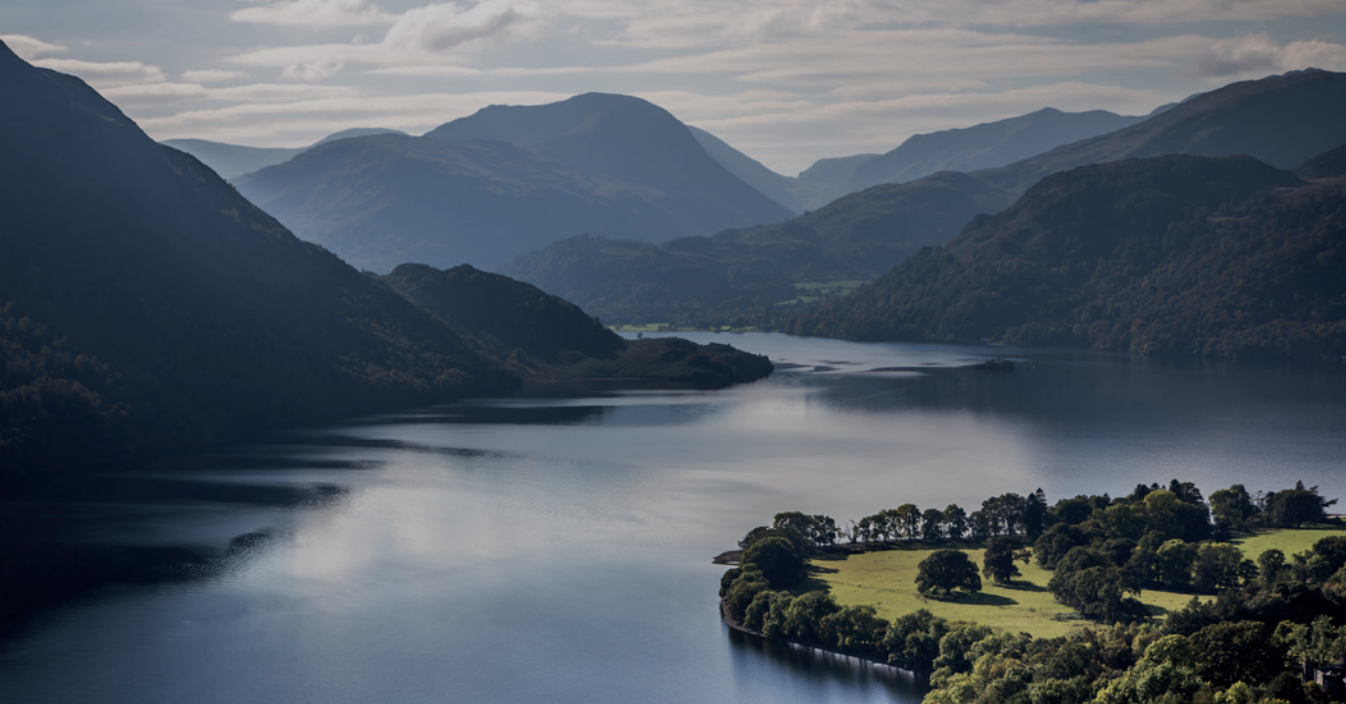
Ullswater carves a roughly northeastward path from the high central fells of the Helvellyn and High Street massif to meet the gentle Eden Valley. The 14.5 kilometre-long, dog-legged lake that shares the valley name is the second largest in the Lake District, after Windermere.
It was here on Ullswater’s shores at Glencoyne Wood that Wordsworth was inspired to write possibly the most famous lines of poetry in the English language: “I wandered lonely as a cloud, That floats on high o’er vales and hill, When all at once I saw a crowd, A host of golden daffodils, Beside the lake, beneath the trees, Fluttering and dancing in the breeze”. Wordsworth further acclaimed Ullswater in one of the most celebrated passages from his great autobiographical poem ‘The Prelude’.
From an early settlement point of view, the remains of prehistoric activity in Ullswater are extensive, spanning the period from Neolithic to the Iron Age. There are examples of rock art near the village of Patterdale in the south as well as stone circles and burial cairns on Askham Fell to the north. The Roman road connecting forts in Ambleside and Penrith, known as High Street, runs along the eastern fells above the valley.
The main industries in the Ullswater Valley were lead mining and slate quarrying, and some of the archaeological remains of these are of national significance. Important sites include Hartsop Hall mine and Myers Head, the latter being a well-preserved example of a late 19th century mine. But the largest mine was at Greenside, west of Glenridding, which operated from the 1820s until 1961.
The farming of Herdwick sheep features strongly in Ullswater today and the valley contains a number of important Herdwick farms, including Hartsop Hall with its Grade II listed 16th century farm buildings at the southern end of the lake. Some of the Ullswater farms had the largest flocks in the Lake District.
Ullswater became a popular tourist location for lovers of the Picturesque from the late 1700s onwards, thanks to both its dramatic scenery and ease of access from Penrith. It also featured in early guidebooks including one by Thomas West, who identified a number of viewing stations around the lake.
The beauty of the lake and its mountain backdrop inspired the building of a number of villas and creation of designed landscapes, including grounds around the stunning Aira Force waterfall, now owned by the National Trust.
The National Trust also owns and cares for the adjacent Gowbarrow Park and, over the 20th century, it gradually acquired further key properties, including iconic farms such as Glencoyne. It now owns and manages a large portion of the valley.
Ullswater has also been the scene of hardfought conservation battles. The Friends of the Lake District managed to force electricity cables to be laid underground along the southern and eastern shores of Ullswater, helping to protect a view once appreciated by Wordsworth and JMW Turner. In the 1960s the Manchester Corporation was prevented from using the lake for water abstraction in a way which would harm the scenery.
Ullswater has a rich heritage of artistic inspiration and conservation and enjoys a powerful sense of identity thanks to its unmistakable landscape and traditions.